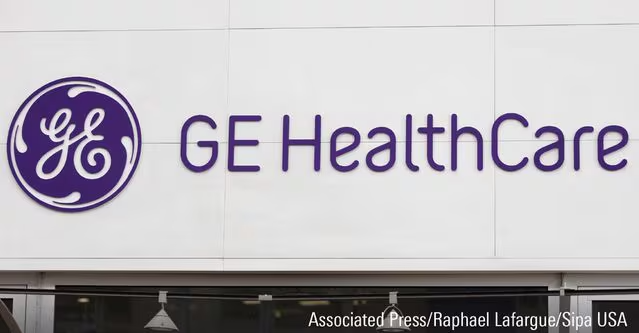
The response of the healthcare sector, especially the pharmaceutical industry, during COVID-19, showcased the speed at which medical science is evolving. Cures for life-threatening diseases are being developed at a breakneck pace and more discoveries are coming down the pike – and this comes with opportunities for investors.
Its glowing prospects and resilience in tough economic conditions make the healthcare industry a particularly attractive pool of potential long-term picks for investors looking to bolster their retirement portfolio.
The following healthcare companies stand out as winners due to their bouquet of products and services, and ability to produce treatments for a wide variety of medical conditions. For risk-averse conservative investors, these names offer a wide margin of safety, sturdy fundamentals, and business models structured to do well in various market conditions. They also pay generous dividends which adds the prospect of income generation to a retirement portfolio.
|
Pfizer Inc |
||
|
Ticker |
||
|
Current yield: |
4.47% |
|
|
Forward P/E: |
10.97 |
|
|
Price |
US$34.51 |
|
|
Fair value: |
US$40 |
|
|
Value |
14% discount |
|
|
Moat |
Wide |
|
|
Moat Trend |
Stable |
|
|
Star rating |
**** |
|
|
Data as of Feb 19, 2021 |
||
Pharma behemoth, Pfizer (PFE) sells a basket of diverse healthcare products and chemicals, prescription drugs and vaccines globally. The firm clocked close to US$50 billion in sales, nearly half of which came from international markets. It spends a whopping US$8 billion annually on research and development.
Pfizer's foundation remains solid, based on strong cash flows generated from a rich product portfolio, while the company's large size affords significant competitive advantages in developing new drugs. “In a business where drug development needs a lot of shots on goal to be successful, Pfizer has the financial resources and the established research power to support the development of more new drugs,” says a Morningstar equity report, pointing out the drugmaker is now launching several potential blockbusters in cancer, heart disease, and immunology.
More recently, Pfizer has generated a sizeable revenue bump from the sale of its coronavirus vaccine. In the fourth quarter, Pfizer reported US$154 million in COVID-19 vaccine sales with expectation of generating close to US$15 billion in COVID-19 vaccine sales in 2021. “We expect Pfizer's COVID-19 vaccine sales will create very strong growth in 2021,” says Morningstar sector director, Damien Conover, who pegs the stock’s fair value at US$40. Beyond the COVID-19 vaccine, Conover projects sales growth of at least 6% annually through 2025 with faster earnings growth.
The firm boasts a wide moat underpinned by economies of scale, a powerful distribution network, and a broad portfolio of patent-protected drugs.
|
Gilead Sciences Inc |
||
|
Ticker: |
||
|
Current yield: |
4.36% |
|
|
Forward P/E: |
9.07 |
|
|
Price: |
US$64.69 |
|
|
Fair value: |
US$81 |
|
|
Value: |
20% discount |
|
|
Moat: |
Wide |
|
|
Moat trend: |
Stable |
|
|
Star rating: |
**** |
|
|
Data as of Feb 19, 2021 |
||
Gilead Sciences (GILD) develops and markets cures for life-threatening infectious diseases. The company’s portfolio is anchored by HIV and hepatitis B and C. In recent times, Gilead has made strategic acquisitions to expand or gain exposure to pulmonary and cardiovascular diseases and cancer.
“Gilead Sciences generates stellar profit margins with its HIV and HCV portfolio, which requires only a small salesforce and inexpensive manufacturing,” notes a Morningstar equity report.
The biopharmaceutical behemoth’s wide moat is supported by its portfolio and pipeline. “Patent protection on newer HIV regimens and Gilead's continued dominance in the hepatitis C market will be enough to ensure strong returns for the next couple of decades,” the report claims.
Gilead’s expertise in infectious diseases and single-pill formulations is a part of its research and development strategy, which is regarded as one of the strongest intangible assets supporting its competitive advantage.
Gilead's Veklury, a leading treatment for COVID-19, has generated US$2.8 billion in sales in 2020 and it “could see another US$2.1 billion in sales in 2021,” says Morningstar sector strategist, Karen Andersen, who recently raised the stock’s fair value from US$77 to US$81, prompted by solid fourth-quarter results.
Further, with multiple oncology data readouts expected in 2021, “there are many opportunities for Gilead to begin to see meaningful top- and bottom-line growth, excluding volatility in sales around COVID-19 therapy Veklury,” she adds.
|
Merck & Co Inc |
||
|
Ticker: |
||
|
Current yield: |
3.44% |
|
|
Forward P/E: |
11.48 |
|
|
Price: |
US$74.82 |
|
|
Fair value: |
US$100 |
|
|
Value: |
25% discount |
|
|
Moat: |
Wide |
|
|
Moat trend: |
Stable |
|
|
Star rating: |
**** |
|
|
Data as of Feb 19, 2021 |
||
U.S. pharmaceutical major, Merck (MRK) makes a range of therapies for conditions including cardiometabolic disease, cancer, and infections. The firm's cancer drugs make up the bulk of sales. The company’s substantial vaccine business includes treatments for hepatitis B and pediatric diseases as well as HPV and shingles. Merck also sells animal drugs. Nearly 40% of the firm's sales are generated domestically.
Having navigated the worst of its patent cliff, wide-moat Merck's drug development strategy is yielding important new drugs, says a Morningstar equity report. “Merck’s combination of a wide lineup of high-margin drugs and a pipeline of new drugs should ensure strong returns on invested capital over the long term,” the report says, adding the company’s new drugs have mitigated the generic competition, offsetting the recent major patent losses.
Its cancer therapy Keytruda, in particular, represents a key blockbuster with multi-billion-dollar potential and “holds a first-mover advantage in one of the largest cancer indications of non-small cell lung cancer,” says Conover, who appraises the stock to be worth US$100.
In the most recent quarter, Keytruda clocked an impressive 27% growth, which helped offset declines from mature drugs and pressures from COVID-19. “Although it represents over 30% of Merck’s total sales, we still expect significant growth from the drug based on increasing penetration in currently approved indications,” says Conover, who projects new cancer drug combinations will further propel sales.
|
CVS Health Corp |
||
|
Ticker: |
||
|
Current yield: |
2.75% |
|
|
Forward P/E: |
9.65 |
|
|
Price: |
US$70.91 |
|
|
Fair value: |
US$92 |
|
|
Value: |
22% discount |
|
|
Moat: |
Narrow |
|
|
Moat trend: |
Stable |
|
|
Star rating: |
**** |
|
|
Data as of Feb 19, 2021 |
||
Leading U.S. healthcare services firm, CVS Health (CVS) is the largest pharmacy benefit manager (PBM) processing about 2 billion adjusted claims annually and has a large pharmacy operation, including nearly 10,000 retail pharmacies, primarily in the U.S. The company also has a strong position in the insurance industry.
“CVS aims to be the most customer-centric health company in the United States and has spent over a decade positioning itself as a leader in healthcare services, with the acquisitions of pharmacy benefit manager Caremark and insurance provider Aetna defining its strategic direction,” says a Morningstar equity report, noting the company possesses enough scale-related cost advantages to generate economic profits for the long run.
The combination of top-tier retail pharmacy, health insurer, and PBM franchises creates the potential to improve health outcomes and lower healthcare costs. “If successful in these endeavours, CVS shareholders could even benefit from double-digit annualized earnings growth in the longer term after these initiatives take hold,” says Morningstar equity analyst, Julie Utterback, who puts the stock’s fair value at US$92.
After relatively flat earnings since 2018, CVS has been pushing to “accelerate its bottom-line growth to the low double digits by 2022 through its various cost-saving programs, lower interest expense after debt repayment, share repurchases, and synergies between its newly combined operations,” says Utterback, who forecasts acceleration of earnings growth during that period, including some margin expansion through 2024.
Passionate about Investing in New Ideas?
Explore the latest Global Thematic Fund Landscape report here




















